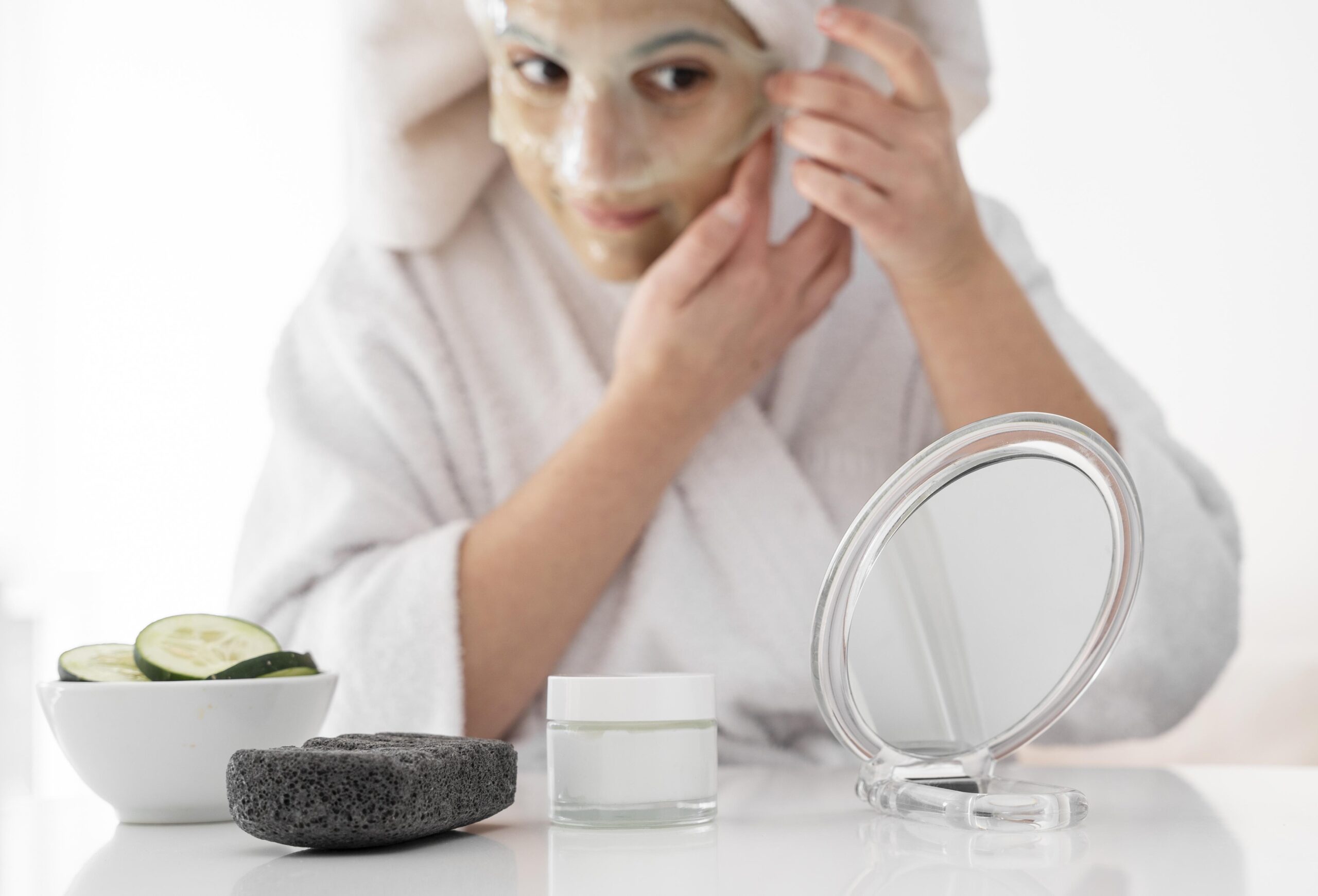Skin infections caused by viruses can be uncomfortable, unsightly, and sometimes even painful. While conventional treatments exist, many individuals seek natural remedies to address viral skin infections. In this comprehensive guide, we delve into effective natural treatments for viral skin infections, empowering you with knowledge to manage these conditions naturally. Buy Ivermectin cream can be effective in relieving itching caused by certain skin conditions like scabies and rosacea.
Understanding Viral Skin Infections
Before delving into remedies, it’s crucial to understand viral skin infections. These infections are caused by various viruses, including herpes simplex virus (HSV), human papillomavirus (HPV), and molluscum contagious virus (MCV). Symptoms can vary but commonly include rashes, blisters, itching, and inflammation. It’s essential to differentiate viral skin infections from other skin conditions to ensure proper treatment.
Natural Remedies for Viral Skin Infections
1. Tea Tree Oil
Tea tree oil possesses potent antiviral properties, making it a popular choice for treating viral skin infections. Its ability to inhibit viral growth and reduce inflammation can help alleviate symptoms associated with conditions like herpes and molluscum contagious. Apply diluted tea tree oil directly to affected areas for effective results.
2. Coconut Oil
Rich in lauric acid, coconut oil exhibits powerful antiviral activity against a range of viruses, including HSV and HPV. Its moisturizing properties also soothe irritated skin, promoting healing and reducing discomfort. Apply coconut oil topically to affected areas multiple times daily for optimal results.
3. Aloe Vera
Renowned for its soothing properties, aloe vera is a natural remedy that can provide relief from viral skin infections. Its anti-inflammatory and antimicrobial effects help reduce itching, redness, and inflammation associated with conditions like herpes and molluscum contagious. Apply aloe vera gel directly from the plant or use a trusted commercial product for best results.
4. Lemon Balm
Lemon balm, a member of the mint family, contains compounds with antiviral properties, particularly effective against HSV. Applying lemon balm topically can help reduce the frequency and duration of herpes outbreaks, as well as alleviate associated symptoms such as pain and itching.
5. Echinacea
Echinacea is an herb known for its immune-boosting properties. Regular consumption of echinacea supplements or tea may help strengthen the immune system’s response to viral infections, potentially reducing their severity and duration. Incorporate echinacea into your daily routine to support overall immune health.
6. Manuka Honey
Manuka honey possesses potent antiviral and wound-healing properties, making it an effective natural remedy for viral skin infections. Its high concentration of methylglyoxal contributes to its antiviral activity, while its ability to promote tissue regeneration accelerates the healing process. Apply medical-grade manuka honey to affected areas for maximum benefit.
Lifestyle Tips for Skin Infections:
In addition to natural remedies, certain lifestyle modifications can help manage viral skin infections effectively:
- Maintain Good Hygiene: Regularly wash and cleanse affected areas to prevent the spread of infection.
- Avoid Irritants: Steer clear of harsh soaps, perfumes, and other irritants that can exacerbate symptoms.
- Manage Stress: Stress can weaken the immune system, making you more susceptible to infections. Practice stress-reduction techniques such as yoga, meditation, or deep breathing exercises.
- Stay Hydrated: Adequate hydration is essential for skin health and immune function. Drink plenty of water throughout the day to support overall well-being.
If you have ever experienced the discomfort and embarrassment of a viral skin infection, you know firsthand the impact it can have on your daily life. From painful blisters to unsightly rashes, these infections can not only affect your physical well-being. It also take a toll on your mental and emotional health. However, by adopting certain lifestyle changes and habits, you can effectively manage viral skin infections and minimize their impact on your life.
Understanding Viral Skin Infections
Viral skin infections are caused by various viruses that affect the skin, leading to symptoms such as rashes, blisters, and itching. Some common types of viral skin infections include…
Adopting a Healthy Skincare Routine
Maintaining a clean and hygienic skincare routine is crucial for managing viral skin infections. This includes…
Avoiding Triggers
Identifying and avoiding triggers that can exacerbate viral skin infections is essential for preventing flare-ups. Common triggers include…
Protecting Against Sun Exposure
Sun exposure can worsen symptoms of viral skin infections and increase the risk of outbreaks. To protect your skin…
Managing Stress
Stress can weaken the immune system and trigger outbreaks of viral skin infections. Therefore, incorporating stress-relief techniques…
Getting Sufficient Sleep
Adequate sleep is essential for overall health, including skin health. Lack of sleep can weaken the immune system and exacerbate symptoms of viral skin infections…
Following a Balanced Diet
Nutrition plays a significant role in maintaining healthy skin. A balanced diet rich in vitamins, minerals, and antioxidants can…
Seeking Medical Treatment
While lifestyle changes can help manage viral skin diseases, it’s essential to consult a healthcare professional for proper diagnosis and treatment.
Managing viral skin infections involves taking steps to alleviate symptoms, prevent spreading the infection, and support the body’s immune response. Here are some lifestyle tips for managing viral infections:
- Practice good hygiene: Wash your hands frequently with soap and water, especially after touching. The affected area or coming into contact with someone who has a viral skin infection. Avoid touching or scratching the infected area to prevent spreading the virus to other parts of your body or to other people.
- Keep the affected area clean and dry: Wash the affected area with mild soap and water, pat it dry gently, and avoid covering it with tight or occlusive clothing that can trap moisture and exacerbate the infection.
- Apply soothing remedies: Use cool compresses or topical treatments such as calamine lotion or oatmeal baths. To relieve itching, pain, and discomfort associated with viral skin damage like herpes simplex or chickenpox.
- Avoid sharing personal items: Do not share towels, razors, clothing, or other personal items with others, as viral infections can be contagious and spread through direct contact with infected skin or objects.
- Boost your immune system: Eat a balanced diet rich in vitamins, minerals, and antioxidants to support your immune system’s ability to fight off viral skin diseases. Stay hydrated, get regular exercise, manage stress, and get plenty of rest to help your body recover more effectively.
Managing viral infections requires a combination of lifestyle changes. In this including adopting a healthy skincare routine, avoiding triggers, protecting against sun exposure, managing stress, getting sufficient sleep. Following a balanced diet, and seeking medical treatment when necessary. By incorporating these tips into your daily life. You can effectively manage viral infections and improve your overall well-being.
Conclusion
Viral skin infections can be challenging to manage, but natural remedies offer a gentle yet effective approach to treatment. By incorporating tea tree oil, coconut oil, aloe vera, lemon balm, echinacea, and manuka honey into your skincare routine, you can alleviate symptoms and promote healing naturally. Additionally, adopting healthy lifestyle habits can further support. Your body’s ability to fight off infections and maintain optimal skin health.



